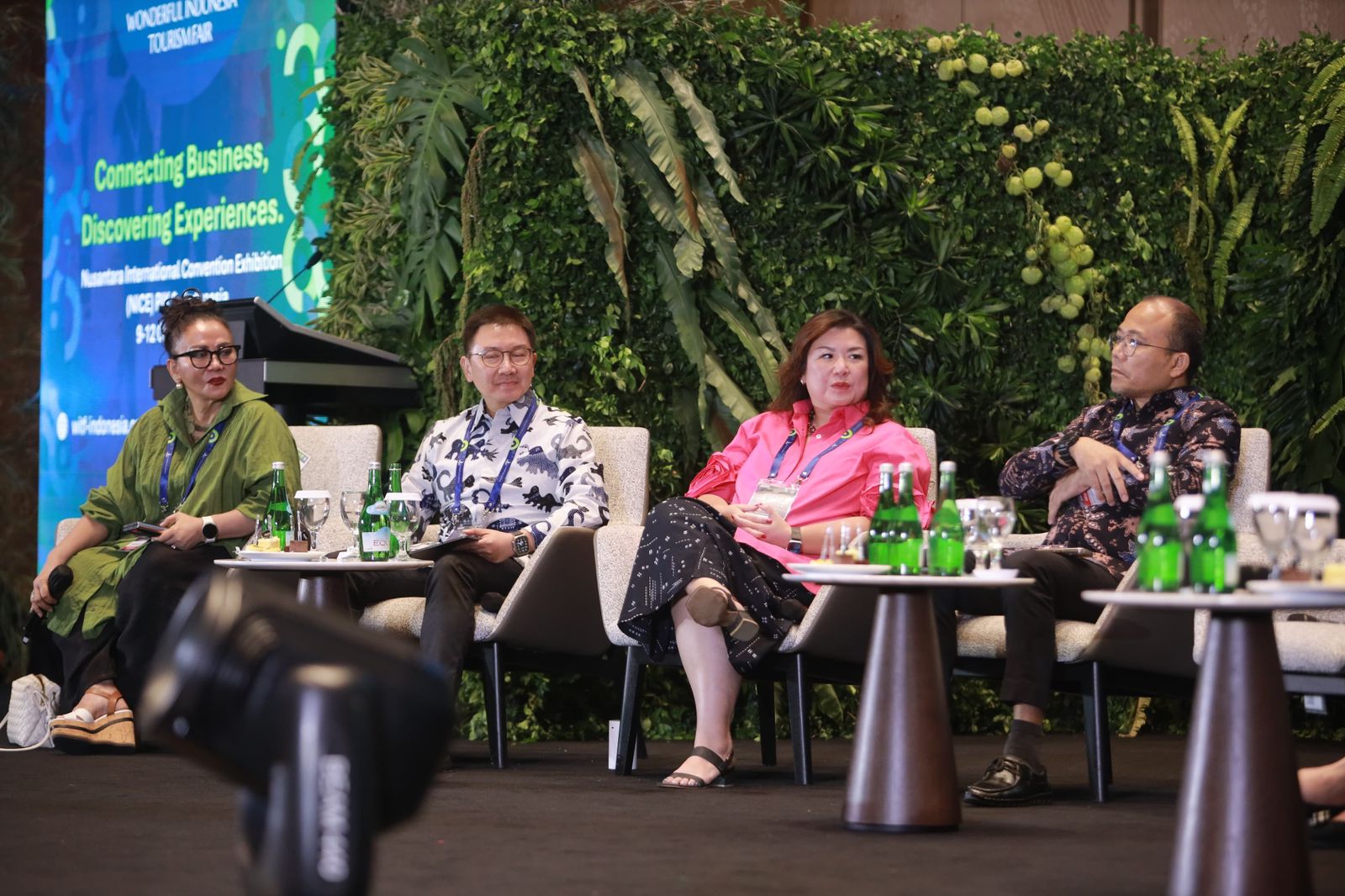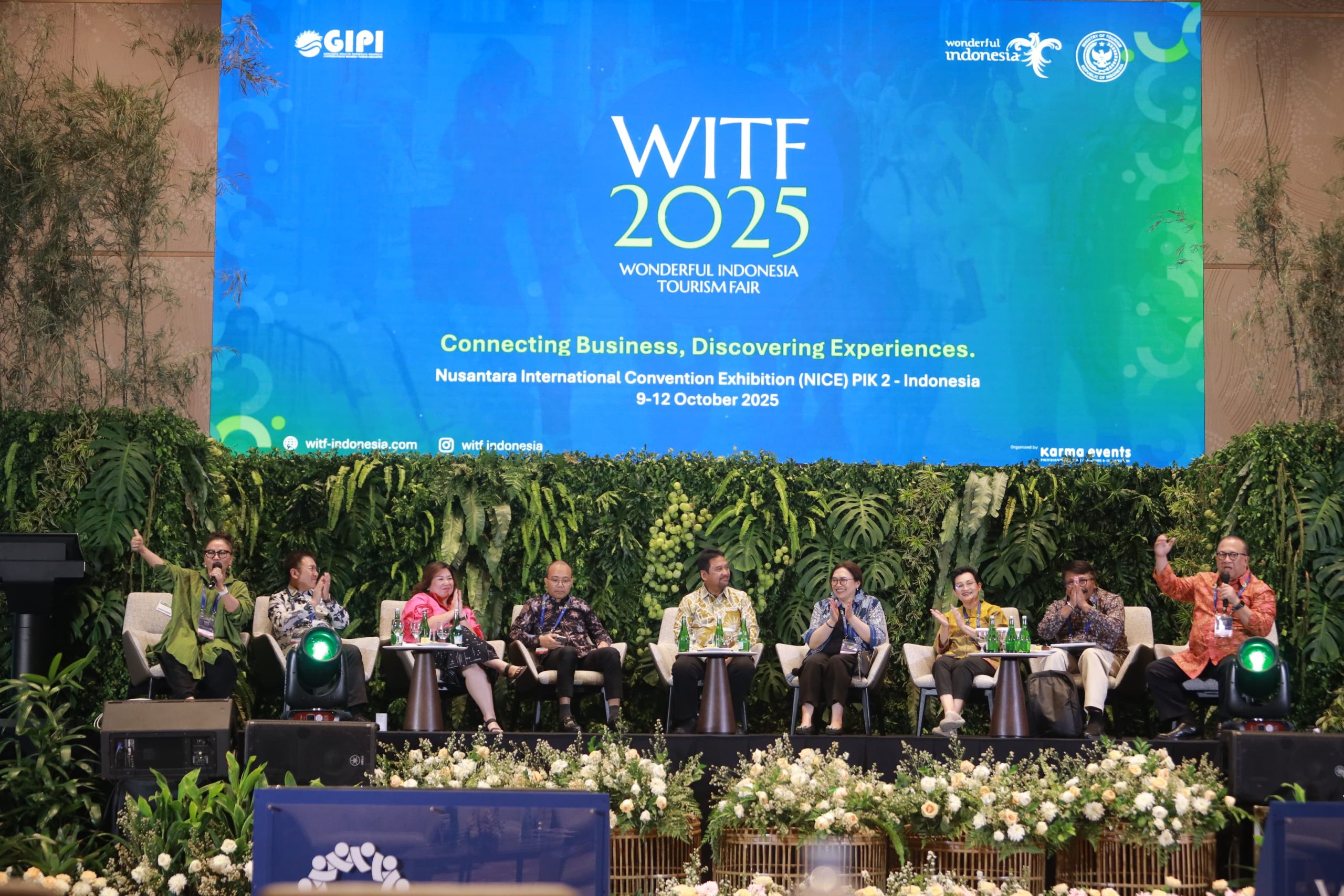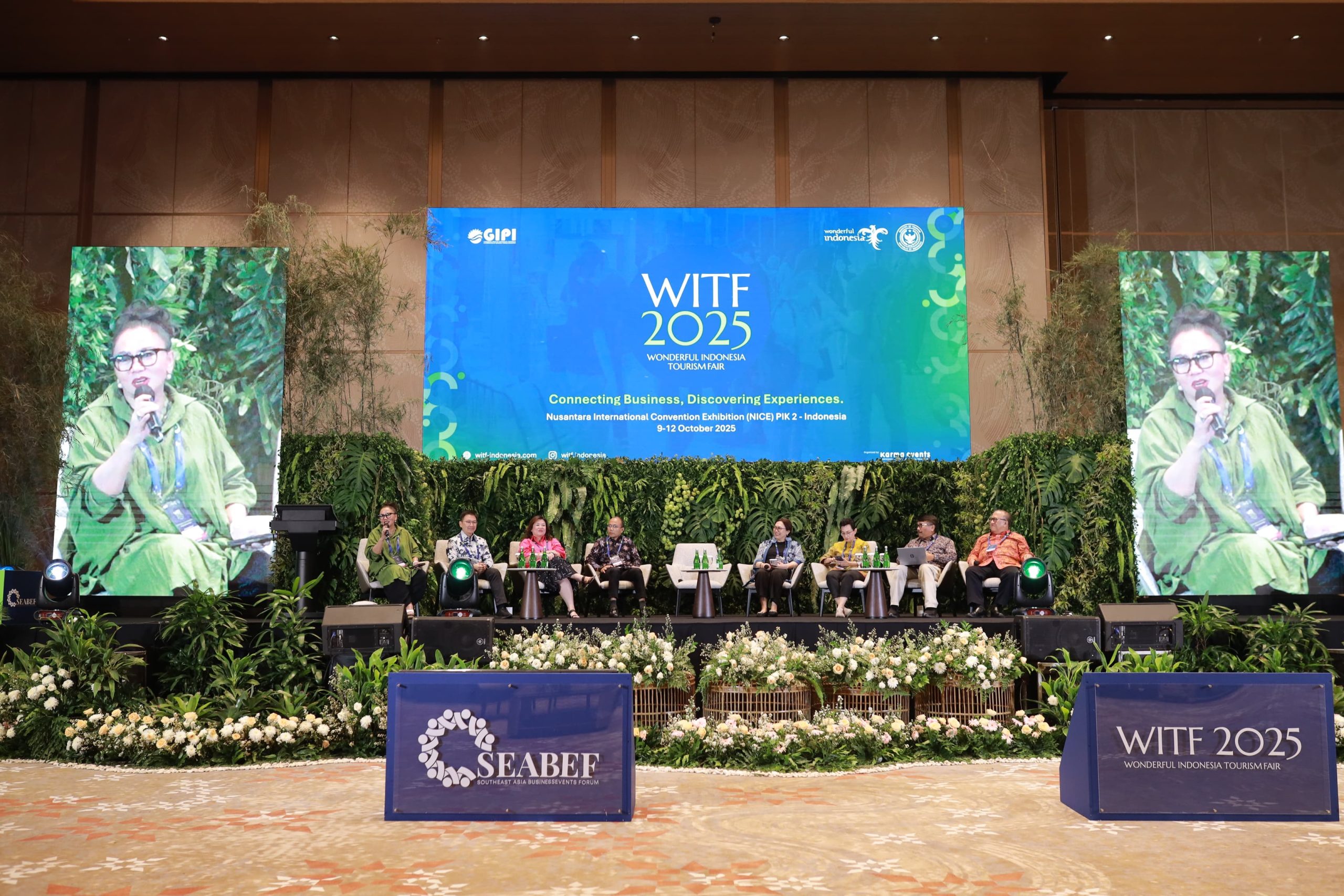Prof. Ir. Wiendu Nuryanti, M.Arch., Ph.D., lecturer at the Department of Architecture and Planning, Faculty of Engineering, Universitas Gadjah Mada, served as one of the keynote speakers at the Wonderful Indonesia Tourism Fair (WITF) and Southeast Asia Business Events Forum (SEABEF) 2025. This prestigious event was organized by the Indonesian Tourism Industry Association (GIPI) in collaboration with the Ministry of Tourism, held at Hall C9, Conference Area, Nusantara International Convention Exhibition (NICE), PIK 2, Tangerang, Banten, October 12, 2025. In her presentation titled Architecture and Tourism, Prof. Wiendu discussed how architecture serves as the heart of Indonesia’s tourism amid rapid global transformations.
Prof. Wiendu identified five key factors, referred to as Game-Changers, that shape the relationship between architecture and tourism: globalization and social media, the tension between tradition and modernity, issues of authenticity and co-creation, the environment as a cultural priority, and the challenges of radicalism and terrorism. According to her, architecture is no longer merely a physical form but a reflection of dynamic social and cultural movements. In this context, maintaining a balance between preserving traditional roots and embracing progress is essential to ensuring the sustainability of national tourism.
Furthermore, Prof. Wiendu emphasized that architecture lies at the heart of tourism, playing a crucial role in the three core components of destination development: Attraction, Accessibility, and Amenity. Architecture shapes the overall tourist experience, embodying the image, identity, and spatial quality that destinations offer to visitors. Within the framework of tourism development, architecture acts as a bridge linking local cultural values, visitor comfort, and sustainable destination appeal.
She also underlined that architecture is the most complete expression of culture. Every form of tourism, whether cultural, natural, or manmade cannot be separated from architectural elements. Iconic landmarks such as Borobudur Temple, Angkor Wat, the Eiffel Tower, and the Taj Mahal stand as testaments to how great works of architecture have become enduring symbols of a nation’s history and cultural identity. This perspective positions architecture as both a record and a representation of cultural heritage on the international stage.
The presence of Prof. Wiendu added a strong academic dimension to the discourse on sustainable tourism. Her presentation aligns with the spirit of Wonderful Indonesia in promoting culture-based and environmentally conscious tourism. The ideas presented resonate with global commitments to the Sustainable Development Goals (SDGs), particularly SDG 11 (Sustainable Cities and Communities) and SDG 13 (Climate Action).
In addition, the discussion on the interrelation between architecture and culture intersects with SDG 4 (Quality Education) and SDG 8 (Decent Work and Economic Growth), where the tourism sector serves as a collaborative platform for creativity, cultural preservation, and community empowerment. Through this forum, Prof. Wiendu’s insights contributed to a broader understanding that architecture is not merely about aesthetics but a strategic instrument in developing tourism that is ethical, inclusive, and globally competitive.
Reported by Rindi Dwi Cahyati



